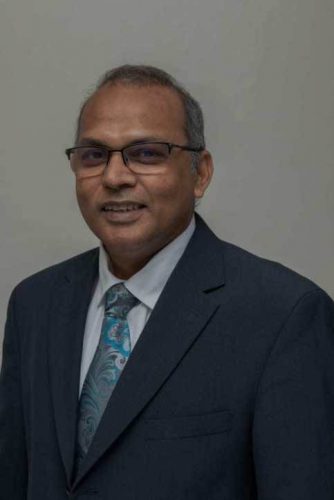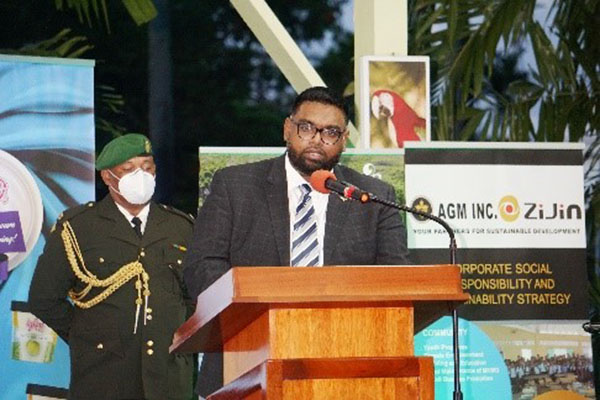As part of its plan to achieve herd immunity by the end of this year, the Government of Guyana has been exploring several options to obtain COVID-19 vaccines and China recently pledged to donate 20,000 doses of its shots.
COVAX, the international mechanism for the development and supply of vaccines, will also be making 3,800 doses of vaccines available to Guyana from February to March. The names of the vaccines in question were not provided.
And with COVAX only providing vaccines for 20 per cent of the Guyanese population in 2021, President Irfaan Ali yesterday disclosed in an address to the nation that the government is exploring several other options to ensure that the majority of the population is vaccinated by the end of this year.

“The pathway we are taking is to accelerate vaccination rates in 2021 and that’s why our efforts is going beyond COVAX because COVAX is catering for 20 per cent of our population in 2021 and we want to increase that because if we are going to exit the pandemic, we are going to achieve herd immunity and many of the experts think that we need to immunise close to 80 per cent of our population so we are striving to be able to immunise as many persons as possible in 2021,” Minister of Health Dr Frank Anthony said during a COVID-19 briefing with the President following the address to the nation.
The President explained that there are several potential COVID-19 vaccines in various stages of development and some, pending approval from the World Health Organization (WHO), but every country on the globe is competing to have access to any one of the vaccines so like any other country, it is the Government’s objective to obtain a vaccine for the Guyanese population as soon as possible.
“In pursuit of this goal, our government is working with multilateral and bilateral partners, and at the same time directly negotiating with the primary manufacturers of these vaccines to access them for Guyana. Last year, Guyana joined the COVAX and is now eligible to receive vaccines for 20 per cent of our population which will be free of cost. We expect to receive 3,800 vaccines in February and March which will be assigned immediately for frontline workers, people with comorbidities and our elderly,” Ali said in response to a question sent by Stabroek News just prior to yesterday’s COVID-19 briefing.
He added that the Government is also working with the Caribbean Community, the Organization of Islamic Cooperation, and the European Union, for a quota of COVID-19 vaccines. He noted that there have also been discussions with the Indian, Russian and Chinese governments and while some of these discussions are ongoing, China has already pledged to donate 20,000 doses of vaccines to Guyana. As it relates to the other countries, discussions should be finalised shortly, Ali said.
Meanwhile, he said that there are also ongoing negotiations with Pfizer and BioNTech, Moderna Inc and AstraZeneca, to get vaccines from those companies and hopes that a deal can be finalised “shortly”.
“In short your Government is wholly committed in obtaining vaccines in the shortest possible time, utilising every means at our disposal for our people,” the Head of State declared.
Ali has stated that COVID-19 vaccinations will not be mandatory so it will be entirely up to a person whether or not they get vaccinated. However, the President encouraged persons to get vaccinated noting that it is the safest way to achieve herd immunity which is a critical component in the fight against the pandemic.
To ensure that the population will feel confident in the vaccine, the President said that he will be the first to demonstrate that it is so by signing on to the vaccination programme adding that when the vaccines do arrive in Guyana they will have the approval of the WHO.
Added to that, he assured that the vaccines will be free of cost. “We are sparing no resources and we are leaving no stones unturned and we are aggressively pursuing very avenue… to get these vaccines and make them available to the population,” he stressed. President Ali also clarified that both doses of the two-stage vaccines will be available to the population.
However, he said even when the vaccines are being rolled out, all persons must continue to observe preventative measures to remain safe. He cautioned that vaccination is not the end of the problem.
Anthony noted that the first set of persons to be vaccinated will be frontline workers and considering that vaccination will not be mandatory there will be a time frame stating exactly when they can get vaccinated. Once that time frame has passed, he said they will move on to persons with comorbidities and the elderly.
The private sector will also be involved in the vaccination process and Anthony disclosed that before the vaccines arrive, training sessions will be conducted with doctors and nurses attached to private hospitals. He added that they are also hoping to get some private physicians on board as well, with the criteria that they will have to submit themselves to several conditions and present all vaccination records to the Ministry.









